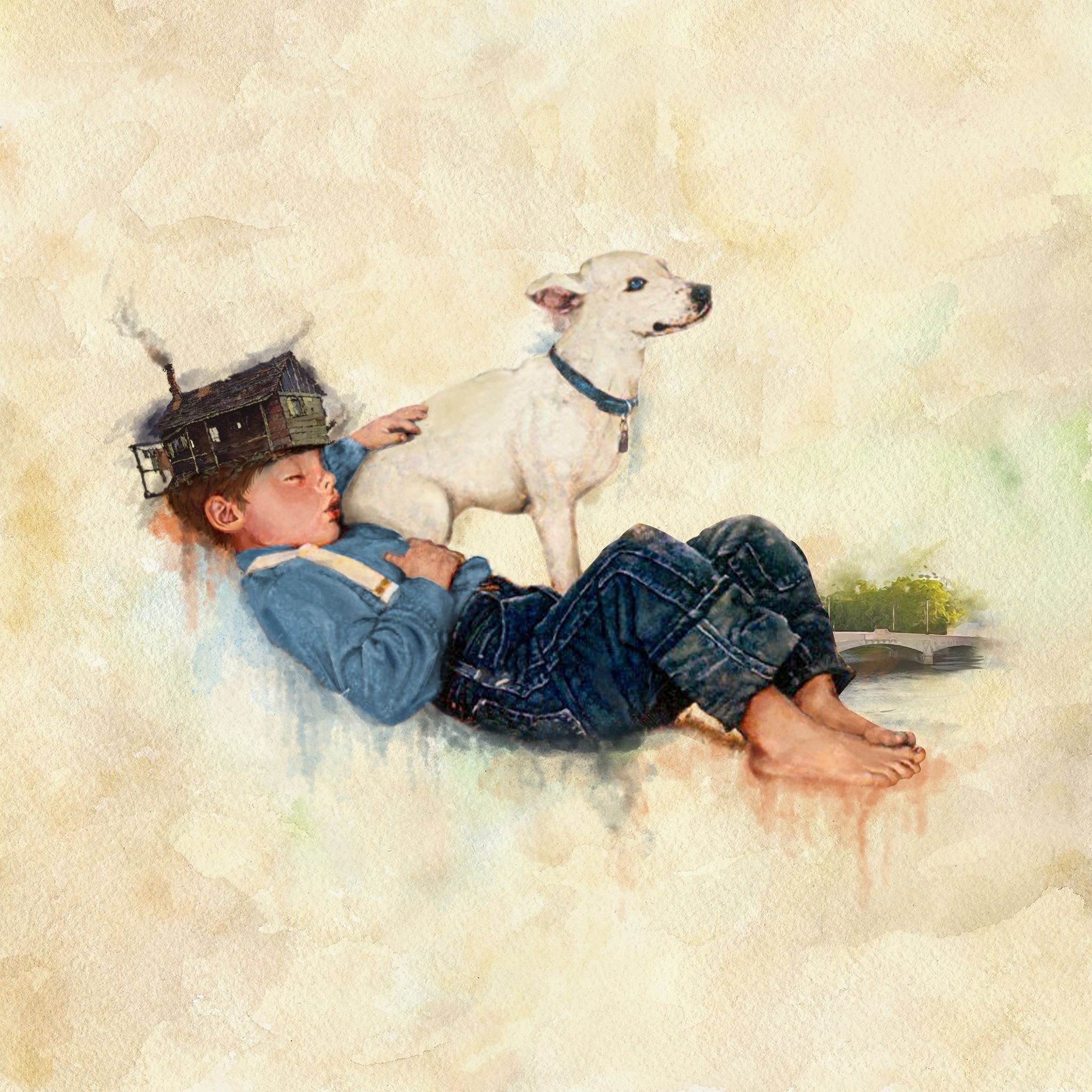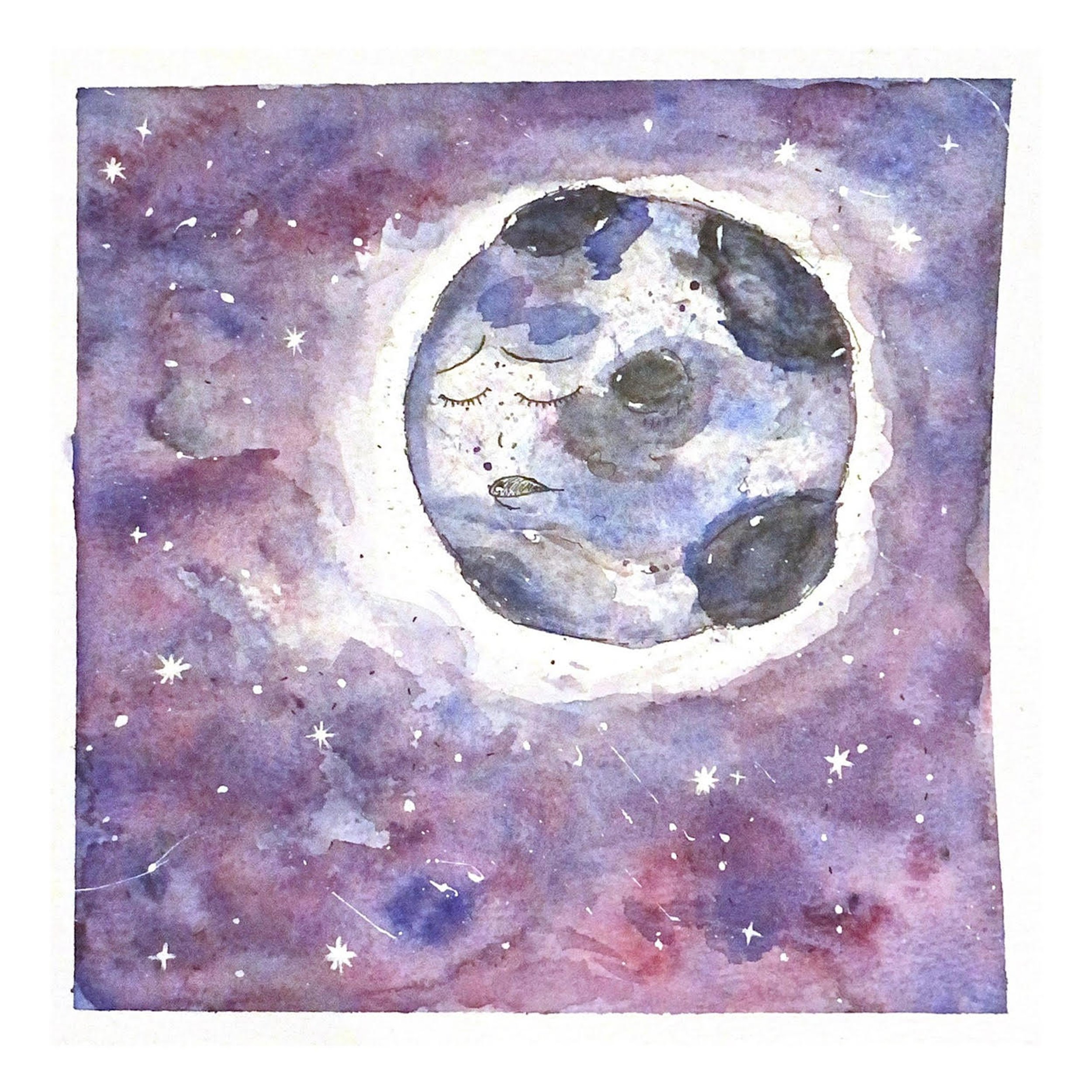by emma schoors
A Will Away lives in hidden valleys between classic, pop, and alternative rock. They’ve carved their own path in an industry that prods at artists until they succumb to the polished peaks of these musical mountains. Deep in these valleys you’ll find songs like “Montezuma Blue” and “Parachute,” utter rebuttals of typical rock formulas. As a whole, their latest effort Stew stands as a testament to individuality, and a genuine compliment to past projects.
“The Rock” opens the LP, a happy medium between electric and acoustic, though “happy medium” is thankfully the least apt descriptor of the record. Each track exists in its own grassy field, frolicking in the freedom of originality, void of adherence to industry expectation or conformity. Any genre in moderation would have been a boring approach, and A Will Away smartly opts for full-fledged dives into their musical inspirations. Harmonies soar successfully on “Karma,” and “Spittin’ Chiclets” represents an entirely new, refreshing take on darker themes.
Tracks like “I’ve Got A Five” and “Rubbed Out” are noticeably more emotive, and oftentimes deeply personal. “Rubbed Out” notes, “Everyone’s skating the line between man and machine,” which acts as one of the album’s key motifs. While there is a definite focus on relationships and the messes that arise within them, internal conflict is a subject not at all overlooked. Considering how multi-dimensional a song like “Hereditary” is, it’s only right that the rest of the album shares in this complexity, both musically and lyrically.
A Will Away straddles the prickly fence between self-indulgence and selflessness, and Stew is the musical equivalent of this contradiction. It traverses themes of normalcy, emotional intensity, and love, and does so with a stunning sense of self-awareness.
Re-birth, re-up, revisit and rebuild. For how thematically substantive A Will Away’s newest release, Stew, is, the prefix re bears its head on more than one occasion. Recant may be the only of these verbs that need not apply to the Connecticut-based band. They plow through the pain of the past in “Re-Up,” and stand bravely in the face of an uncertain future in “Speechless.” Stew is A Will Away accepting their hand as at risk, and immortalizing it through sound. We caught up with the band to talk core influences, the new album, and what the future holds.
photo by brent campanelli
A Will Away’s sophomore album Stew is the band’s latest project. Can you take us through what the initial spark of inspiration for this album was?
Matt: “It’s truly difficult to pin down a particular ‘spark’ of inspiration for Stew. The record is more a culmination of both narrative and sonic work that we’ve been pursuing for the majority of our career as a band.
The aim of the band’s writing, up to this point, has always been to speak openly and earnestly about the human experience, from our own vantage point as Millennial adults living through the ever-changing conditions of the modern era. Stew aims to really dial that concept up to 11, and serves as more of a look back at the last decade of our lives in an attempt to connect who we are now, with who we were when we started this whole process.
There were a number of loose song structures and ideas for this LP kicking around for a few years prior to producing it, but I think that when I put together the first completed demo for ‘Re-Up’ was probably the moment that we knew we had an actual record on our hands, in the sense that Stew’s production started to feel sort of inevitable.”
“Re-Up” is the energetic lead single. Who chose this as the first release from the album, and why?
Matt: “As with every aspect of the release of our music — the decision was a collaborative one between the band and our team. ‘Re-Up’ is the opening track to the B-side of the record and very much gives off the energy of a ‘fresh-start’ (for lack of a better term).
‘Re-Up’ is a song about doubling-down on your convictions and the people you share them with. After living through and producing an LP in a once in a hundred year pandemic — that message felt very appropriate to what we wanted to convey at the beginning of this record cycle.”
Which song from the album went through the most changes before reaching its final form?
Matt: “None of the songs changed very drastically from start to finish — they all just grew into their own naturally and found their footing once all of our individual parts were put together. The one that probably surprised us all the most was ‘Montezuma Blue’ though. I don’t think any of us really expected that song to be as big and boisterous as it ended up on the record, because of how light and floaty it is at its core.
It was written to be more of a humorous take on some unpleasant feelings, and somehow throughout the process of producing it, the song found it’s own unique voice. It lives in a headspace I don't think is often tread over in modern music.”
Songs like “Spittin’ Chiclets” and “Montezuma Blue” feel like big steps forward for the band sonically. Did you pull from any musical influences you hadn’t before?
Matt: “Interestingly enough, we haven’t really ever changed the influences that we pull from when writing and recording. I will say though that Stew is the first of our efforts where we felt completely comfortable in drawing from those influences with no regard for masking them for modern consumption.
We’ve always been primarily influenced by classic rock, 80’s pop rock, and 90’s-Early 2000’s alternative rock — but we’ve also always been very motivated to try and frame those influences in a context that feels more refreshing to modern audiences. In the past we’ve found that framing ourselves as anything other than a loud and proud rock band on record has done us somewhat of a disservice as creatives.
We’ve often found ourselves re-working or re-adapting songs for live settings to better suit who we are as players, and Stew is one of our first forays into recording the renditions of songs that we feel legitimately showcase our unique talents, as opposed to what we think might be agreeable to music industry professionals or fans of our contemporaries.”
Were there any songs that almost didn’t make the record?
Matt: “Yes! ‘Karma’ is a song that very nearly didn’t make the cut when we got down to the wire. In a lot of ways the song legitimately felt ‘too simple’ to be complete in it’s own right, during the pre-production phase. For months we were convinced that the song was unfinished.
There was a particular moment during production where the decision was made to forgo a second verse entirely, and replace it with a melodic guitar solo. On paper this decision felt like a bit of a cop-out from a writing standpoint, but once we tried it out during production it became incredibly clear that it was the only logical choice for that style of song.
Now it’s one of our all-time favorites and we’re very glad that we went with our guts and didn’t scrap it out of fear.”
What do you hope Stew means for the band moving forward? How do you hope audiences react?
Matt: “We hope that Stew will operate as a sort of re-birth for the band. As I stated earlier in this interview, we’ve always tried in the past to use our records as stepping stones to bigger and better things within the narrow context of how things will be perceived within the music industry.
We hope that Stew will allow audiences to finally see us for who we truly are. Warts and all, we feel like it’s the most authentic representation of ourselves as individual players, and of the band as a whole that we’ve ever been able to achieve.
We also hope that listeners will be able to use the record as a mirror for their own challenges and hardships. Hopefully they’ll be able to view that the purpose of digging into some of our more challenging feelings as human beings is to adapt and improve. To find a productive and positive middle ground between wallowing in the difficulties of the past and striving to be happier, healthier, and more true to oneself in the future.”
If you could leave fans with one lyric that sums up the album as a whole, what would it be?
Matt: “The opening lines to ‘I’ve Got a Five’
I’m feeling rough,
but I guess you knew that off the cuff.
And every time I think I’ve had enough,
I get back up,
and keep on ticking.”






